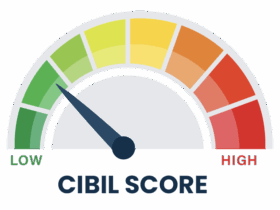Cross-border living, working, and retiring for American and Canadian expatriates presents a unique set of challenges, with one of the most significant being the complex tax systems of both countries. As citizens of two nations, they often find themselves entangled in a web of regulations and requirements that can lead to hefty tax bills and administrative headaches. In this article, we will explore why cross-border tax planning is essential for American and Canadian expats, the challenges they face, and the importance of working with a cross-border financial advisor to minimize taxes and fees.
The Growing Trend of American and Canadian Expats
The world is becoming increasingly interconnected, and people from different countries are more mobile than ever before. This trend is evident in the rising number of American and Canadian expatriates who choose to live, work, or retire on the other side of the border. Some Americans move to Canada for career opportunities, while Canadian retirees often opt for a warmer climate in the United States. This migration across the border has led to a surge in the need for cross-border tax planning.
The Tax Implications of Cross-Border Living
Living as an expat in a foreign country is an exciting adventure, but it also comes with tax responsibilities. American citizens are subject to taxation on their worldwide income, regardless of where they reside, while Canadians are taxed on their worldwide income if they maintain significant residential ties to Canada. This dual taxation can result in a hefty tax burden, making it crucial to engage in cross-border tax planning.
Challenges Faced by American Expats Moving to Canada
a. U.S. Taxation for American Expats
American citizens must continue to file annual tax returns with the Internal Revenue Service (IRS) even if they live abroad. The U.S. tax system is complex, and expats must navigate issues such as Foreign Earned Income Exclusion, Foreign Tax Credit, and reporting of foreign financial assets. Failure to comply with U.S. tax laws can lead to penalties and legal consequences.
b. Canadian Taxation for American Expats
Upon moving to Canada, American expats become subject to Canadian tax laws, including federal and provincial/territorial taxes. They need to understand Canadian tax brackets, deductions, and credits, which can be significantly different from the U.S. system. Proper tax planning is necessary to optimize their tax situation in Canada.
c. Retirement Savings and Investments
Retirement planning for American expats in Canada can be challenging due to differences in retirement account structures and tax treatment. Decisions about how to handle 401(k) plans, IRAs, and other retirement accounts can have significant tax implications. Expats must also navigate the tax consequences of various investment options in both countries.
d. Estate Planning
Estate planning becomes more complex when American expats have assets in both the U.S. and Canada. They need to consider issues like estate taxes, inheritance laws, and the impact of cross-border estate planning strategies.
Challenges Faced by Canadian Expats Moving to the U.S.
a. U.S. Taxation for Canadian Expats
Canadian citizens relocating to the United States are subject to U.S. tax laws, including federal and state taxes. Understanding the intricacies of the U.S. tax code, such as the Foreign Account Tax Compliance Act (FATCA), tax credits, and deductions, is crucial to optimize their tax situation.
b. Reporting of Foreign Assets
Canadian expats living in the U.S. must navigate the reporting of foreign financial assets, including bank accounts, investments, and property. Failure to comply with these reporting requirements can result in penalties.
c. Health Care and Social Security
Understanding the U.S. healthcare system and Social Security benefits is essential for Canadian expats. They need to determine how their Canadian healthcare coverage and retirement benefits align with the U.S. system to avoid coverage gaps or overpayments.
d. Estate and Inheritance Taxes
Estate and inheritance taxes in the U.S. can be complex, and Canadian expats may need to engage in cross-border estate planning to minimize tax liabilities for their heirs.
The Role of Cross-Border Tax Planning
a. Minimizing Tax Liabilities
Cross-border tax planning aims to minimize the tax liabilities of American and Canadian expats while ensuring compliance with the tax laws of both countries. Tax planning strategies may include utilizing tax treaties, optimizing deductions and credits, and making strategic decisions about retirement savings and investments.
b. Asset Protection
Asset protection is a critical aspect of cross-border tax planning. Expats need to safeguard their assets and investments while minimizing exposure to legal and financial risks associated with living in a foreign country.
c. Retirement Planning
Cross-border financial advisors can help expats make informed decisions about their retirement savings and investments, taking into account the tax implications of different retirement account types and investment options in both countries.
d. Estate Planning and Wealth Management
Working with a cross-border financial advisor is essential for creating a comprehensive estate plan that addresses cross-border issues. This includes wills, trusts, and gifting strategies that minimize estate taxes and ensure a smooth transfer of assets to heirs.
e. Compliance and Reporting
Cross-border financial advisors assist expats in fulfilling their tax reporting obligations in both countries, reducing the risk of penalties and legal consequences. They also help expats navigate complex financial reporting requirements, such as the Foreign Bank Account Report (FBAR) and Form 8938.
The Importance of Professional Guidance
Given the complexities of cross-border tax planning, working with a qualified cross-border financial advisor is critical for American and Canadian expats. These professionals specialize in understanding the tax laws, financial regulations, and investment opportunities of both countries, allowing expats to make informed decisions that minimize taxes and fees.
a. Expertise in Tax Laws
Cross-border financial advisors are well-versed in the tax laws of both the U.S. and Canada. They can identify opportunities for tax optimization and help expats navigate the complexities of dual taxation.
b. Customized Financial Strategies
Each expat’s financial situation is unique, and cross-border financial advisors tailor their strategies to meet individual needs. They consider factors such as income, assets, goals, and residency status to create personalized financial plans.
c. Investment and Portfolio Management
Cross-border financial advisors provide guidance on investment options that align with an expat’s financial goals and risk tolerance. They help create diversified portfolios that optimize returns while minimizing tax liabilities.
d. Regulatory Compliance
Cross-border financial advisors ensure that expats remain in compliance with the tax laws and financial regulations of both countries. They assist with the preparation and filing of tax returns, as well as the reporting of foreign financial assets.
e. Peace of Mind
Working with a cross-border financial advisor offers expats peace of mind, knowing that they have a knowledgeable professional to navigate the complexities of cross-border living, minimize their tax burden, and protect their financial interests.
Conclusion
Cross-border tax planning is crucial for American and Canadian expats living, working, and retiring on opposite sides of the border. The challenges of dual taxation, reporting requirements, and complex financial regulations necessitate the expertise of cross-border financial advisors. By collaborating with these professionals, expats can optimize their financial situation, minimize taxes and fees, and enjoy a smoother transition into their new cross-border life. Whether you’re an American moving to Canada or a Canadian relocating to the United States, seeking the guidance of a cross-border financial advisor is an investment in financial stability and peace of mind.











